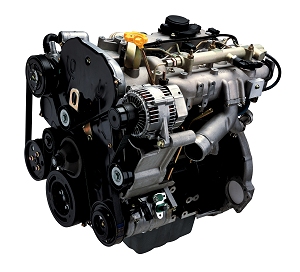May 1, 2006
Fed Up With High Gasoline Prices? It’s Time to Bring Back Diesel
By Michael D. Shaw
Looking for an antidote to high gasoline prices? How about a viable alternative technology that is popular throughout the world, and IS embraced by nearly all automobile manufacturers? The answer is an old but proven brand of energy: Diesel.
The fact is, diesel-powered cars and trucks get excellent gas mileage, while avoiding many of the problems that had plagued previous generations of transportation. In Europe, anywhere from one-third to two-thirds of all cars and trucks operate on diesel; the same statistics exist in several other parts of the globe, making diesel a reliable, cheap, and successful option for critics who, rightly, bemoan the cost of gasoline. And yet, opponents of diesel—particularly in the United States in general and California in particular—have an outdated, even biased, perception of diesel as a source of excessive pollution, foul odor, and unreliable operation.
Maybe it’s time for them to get with the program. Improved technology has drastically reduced the inherent pollution, and since diesels burn less fuel than gasoline engines, fewer emissions are generated overall. This is especially true with the bad greenhouse gas, carbon dioxide. Diesels generate about 25 percent less carbon dioxide than gasoline-powered automobiles. No less than California Air Resources Board (ARB) Chairman Robert Sawyer recently endorsed the use of light duty diesel vehicles as a means of complying with greenhouse gas regulations:
“We suspect that the [greenhouse gas] standard may drive in part the increased use of diesels in California. The potential to meet the standard in this decade is good—we anticipate that will happen.”
But, outdated and superficial knowledge is nothing new to ideologues, nor is cognitive dissonance. Many ill-informed American Greens look to Europe as a quasi-utopia, where Green politics and high levels of taxation are the norm. How then can they reconcile the Continent’s widespread use of nuclear power as well as diesel, energy sources that are anathema here at home? Diesel is so popular over there—indeed, its initial success is the direct result of generous governmental subsidies—that even America auto manufacturers produce diesel-powered cars in large quantities all across Europe.
Today’s diesel engines are marvels of technical sophistication. Take, for instance, this description by Bill Howard of PC Magazine, the publication’s resident auto buff:
“Technology has eliminated much of the noise that diesel engines make; there’s none inside the car and hardly any outside. A sophisticated common-rail fuel-injection system propels an atomized stream of fuel into the cylinders at twice the speed of sound, ensuring that air and fuel are properly mixed.”
Translation: They start almost instantly, even in cold weather.
Even better, diesel cars rival if not exceed the fuel economy of most hybrid cars, the current darlings of the environmental movement. Diesel’s greater energy content, coupled with the efficiency of compression ignition, enables diesel vehicles diesel to get significantly better mileage than gasoline-powered cars. Volkswagen’s diesel-powered Jetta gets 36 miles per gallon, which is only a few miles short of the numbers achieved by some heavily touted hybrids.
Since hybrids often sell well above their list price, much of the fuel savings is negated. Note also that real world numbers do not usually match EPA testing. After all, the goal is to score high on these tests, and not necessarily on the road. Sadly, the same observation can be made for mandated crash tests, as well.
A frequently cited example has the the Toyota Prius hybrid test car achieving 44 miles per gallon in real world driving, as opposed to the highway rating of 55 mpg in government tests. There is not enough data on the new clean diesels to see how real world numbers compare to testing at this point.
Diesel is a realistic solution to high gas prices and concerns about improved fuel efficiency. An added bonus is that these engines can run off biodiesel, and there are sound methods of obtaining this from various forms of waste right now.
Diesel has always been a big factor in larger commercial vehicles and machinery in the the US. It’s high time to re-popularize diesel passenger cars. We’ll see the benefits in our wallets and on the road.

